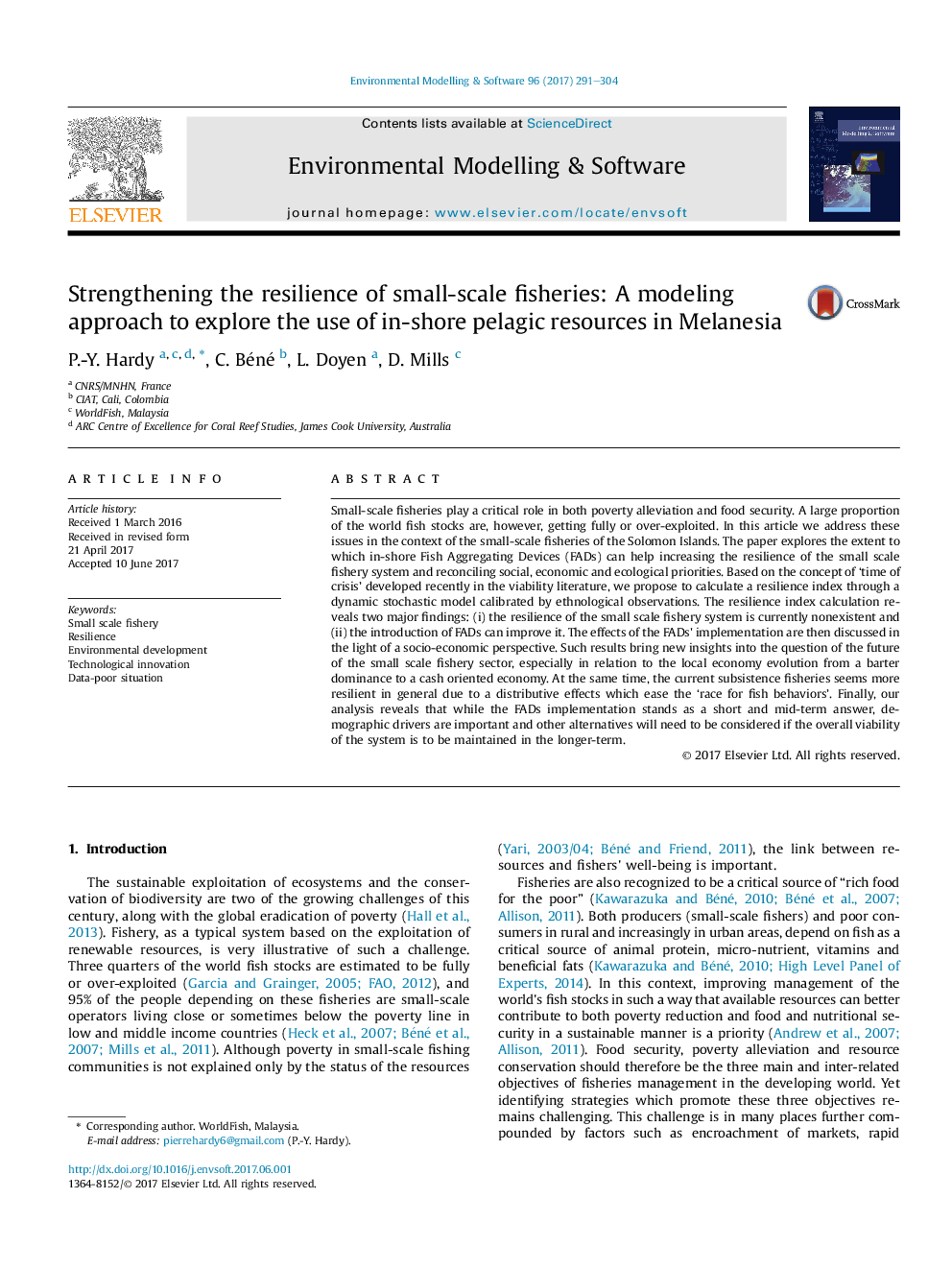ترجمه فارسی عنوان مقاله
تقویت انعطاف پذیری ماهیگیری کوچک: یک روش مدل سازی برای کشف استفاده از منابع دریایی ساحلی در ملانزی
عنوان انگلیسی
Strengthening the resilience of small-scale fisheries: A modeling approach to explore the use of in-shore pelagic resources in Melanesia
| کد مقاله | سال انتشار | تعداد صفحات مقاله انگلیسی |
|---|---|---|
| 138660 | 2017 | 14 صفحه PDF |
منبع

Publisher : Elsevier - Science Direct (الزویر - ساینس دایرکت)
Journal : Environmental Modelling & Software, Volume 96, October 2017, Pages 291-304
ترجمه کلمات کلیدی
ماهیگیری کوچک انعطاف پذیری، توسعه زیست محیطی، نوآوری تکنولوژیک، وضعیت اطلاعات بد،
کلمات کلیدی انگلیسی
Small scale fishery; Resilience; Environmental development; Technological innovation; Data-poor situation;

